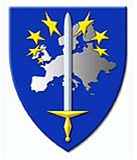Image Source: bloomberg.com
A week ago, EU Commission President Jean-Claude Junker suggested that EU member states start building up a European army. This suggestion is not new and many people are suspicious that this would mean a militarization of the EU. Is this perception accurate and what would be the benefits of an EU army?
Over the last few years, the process of European integration, and especially the Common Foreign and Security Policy (CFSP), have become stuck. Now, in the most severe crises that Europe faces, namely that in Ukraine and the financial crisis, there is an opportunity to once again deepen European integration.
Many argue that European armed forces would mean militarization, but this is not necessarily true. If Europe had such forces, it would mean that the armies of the member states or parts of these would be transferred into a common force.
Deployment of troops
If this happens, the decision to deploy troops in combat has to be made by all member countries in consensus, without a single dissenting vote, as is case with all CFSP matters. The only question would be who should vote on the deployment: The national parliaments, the EU Commission or the EU Parliament? Some EU States have legislation concerning their military forces and these have to be carefully considered. According to German legislation (GG), the German armed Forces, the Bundeswehr (BW), is a parliamentary army, which means that it is under the control of the Bundestag and in times of peace, the Commander-in-Chief is the Defence Minister. According to Article 23 GG, it is possible for the German Bundestag to transfer sovereignty rights to the EU, which means that a European Army under the control of the EU Parliament with an additional committee of EU Ministers of Defence would be a possible means of ensuring adherence to national legislation.
Pooling and sharing
Now, the question of benefits should be considered. The biggest opportunity for a European Army is that the principles of pooling and sharing can be plasticized. In the last years, the military budgets of EU states were cut and pooling and sharing capabilities could increase the efficiency of the armed forces while reducing doubled capacities. The world’s biggest army is operated by the USA, with 1.4 Million soldiers, but the EU’s total would be even bigger, with approximately 1.9 Million. With a unified army, the procedure of acquisition could be improved and the European Defence Agency (EDA) could start working more effectively in coordinating the process of military acquisition. That these different military forces can work together and strike together can be seen in multilateral corps like the German/Dutch Corps being able to fulfill the role of NATO’s Very High Readiness Joint Task Force (VJTF).

Defence Policy in Europe
Another case that is pointed out by critics, that a European army and strong CFSP would weaken NATO, is not entirely accurate. Most EU states, with the exception of Austria, Finland, Ireland, Cyprus, Malta and Sweden are members of NATO. In the North Atlantic Treaty, it was made clear that the top priority is NATO, which means that the EU can only deploy their forces if they are not needed for NATO. NATO and the EU are already closely linked with each other and the EU uses the capabilities of NATO, but a bigger, unified and more effective EU army would help NATO and especially the USA because they would thereby have a strong, reliable partner. This situation is very difficult to handle because on the one hand, the USA demands that European nations take a more active role in international relations but on the other, they fear that once the EU becomes a mighty global player, it will no longer need NATO and the USA.
This fear has to be cleared and the strong alliance with the US continued. Only if the US realizes that unified European forces will aid them, because the EU can better share the burden of deploying soldiers and raising money for international operations, can the project of a European army work.
Please note that the views expressed are those of the author and do not necessarily represent or reflect the views of Munich European Forum e.V.
